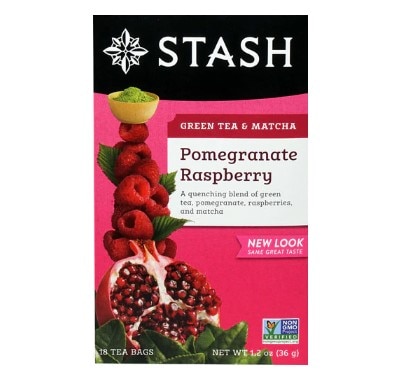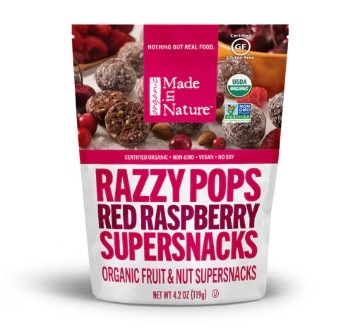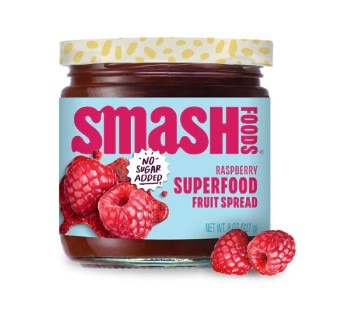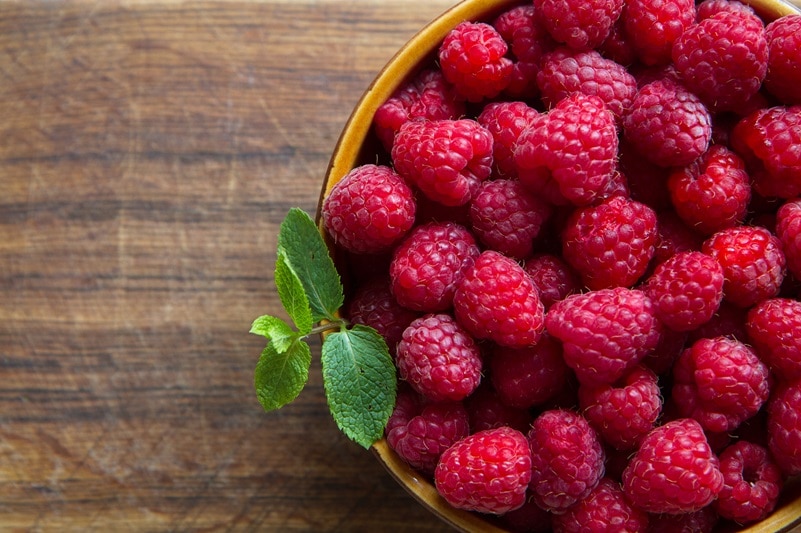Berries are a fruit that have long been touted for being nutritious, tasty and full of health benefits. But did you know that berries are each a little unique in what they can do for our bodies?
There are 4 different types of raspberries. Red raspberries, being one of the types, are from the rose family. Most of the red raspberries consumed in the United States come from Washington, Oregon or California and can be purchased at most grocery stores. They are a summer season berry that can sometimes be forgotten about in the shadow of other popular berries. There’s a lot to love about the nutrients in red raspberries and plenty of benefits to talk about. Here are just a few of the many raspberry benefits.
Raspberry Benefits: A Tasty Way to Support Wellness
A source of vitamin C
Vitamin C is an essential vitamin that can also act as an antioxidant in our bodies. It keeps the immune system running normally, plays a key role in skin integrity and healing and is essential to many other body processes. Red raspberries are packed with vitamin C. They can provide around 50% of the Recommended Dietary Allowance (RDA) for vitamin C with 54 grams in a 1 cup serving. Adults need 75 to 100 milligrams of vitamin C for men and women respectively. Even more is required for pregnancy and lactation. Additionally, this need increases by 35 milligrams for someone who smokes. Talk to a Registered Dietitian Nutritionist to find out individual needs.
Antioxidants
Along with vitamin C, raspberries contain many other antioxidants, like anthocyanins and ellagitannins, that protect our body from damage. Antioxidants help our bodies by repairing the damage caused by free radicals.
They’re filled with fiber
One cup of raspberries packs 8 grams of fiber. Fiber is an important nutrient for gut health and chronic disease prevention. According to the Daily Recommended Intake (DRI), for adults up to age 50, women need about 25 grams of fiber per day and men about 38 grams. This drops slightly for adults over 50 to 21 grams and 30 grams for women and men . Most Americans do not get enough fiber in their diets, and raspberries can help bridge that fiber gap!
Weight management
There are only about 64 calories in 1 cup of raspberries, making them a great carbohydrate choice for anyone looking to manage their calorie intake. That’s a lot of raspberries for not a lot of calories! These berries are a great choice for sticking to any calorie goals one might have or just for fitting into a typical 2,000 calorie diet.
10 Ways to Eat More Red Raspberries
Raspberries have a tart yet sweet flavor that is truly memorable. They can be purchased fresh or frozen and used in so many fun and exciting recipes. Here are 10 unique ideas to eat more red raspberries.
- Keep it basic, eat them fresh as a side or snack any time of day.
- Sweeten yogurt or oatmeal by mixing in fresh or frozen raspberries.
- Add fresh raspberries atop almond butter
- Toss fresh berries into a fruity summer salad.
- Try a new recipe like raspberry chia seed pudding.
- Add fresh or frozen berries to sparkling water or spirits for a refreshing spritz beverage.
- Add as a sweet option to a meat and cheese board or other appetizer.
- Bring this fun patriotic summer dessert to summer holiday celebrations.
- Give berries a longer shelf life by making or buying raspberry preserves or jam.
- Pair with other summertime fruits and blend them into a smoothie.
How to Store & Prepare Raspberries
Sounds appetizing, right? After reading these mouthwatering ideas for using red raspberries, here are some friendly reminders and tips before diving into the next carton.
- Store raspberries in the refrigerator or freezer.
- Always rinse raspberries with cold running water before eating.
- Wait to rinse the berries until right before eating to prevent mold growth.
- Inspect berries before eating and discard any with mold.
- A cup of raspberries is more than people usually think! Measure out 1 cup with a measuring cup at least 1 time to get an idea of what 1 cup of the berries looks like. Eat close to 1 cup a day to get the most out of raspberry benefits.
Add red raspberries to the cart at the next shopping trip, and let this article be your guide to eating this enjoyable berry. Need help thinking of more unique ways to include more red raspberries into daily eating patterns, or perhaps looking for more nutrition guidance and other healthful food options? Make an appointment with a Kroger Health registered dietitian nutritionist, our nutrition experts. They are “berry” good at what they do!
Featured Products



The post Small but Mighty: The Powerful Perks of Red Raspberries first appeared on The Upside by Vitacost.com.


